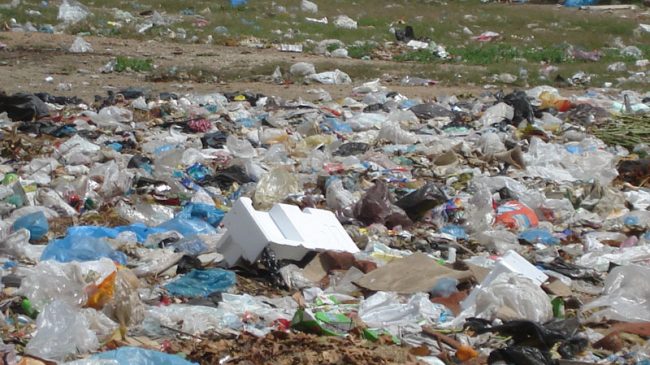The Huntington Beach City Council’s recent decision to overturn its ban on plastic bags is not only good for shoppers, it is likely good for the environment too. So is the news that the statewide ban signed into law by Gov. Jerry Brown won’t come into force until after the voters have a say in November 2016. But over 100 other municipalities in the state already have bans in place, so the battle over plastic bags will continue for some time.
Californians can be proud of their commitment to environmental protection. Beginning with action to reduce smog-causing chemicals in the 1950s, they have led the nation in promoting environmental improvement. But sometimes this commitment has led to perverse results. The banning of lightweight plastic bags in cities is a case in point.
These bans, which also typically mandate a minimum fee of 10 cents each on paper and reusable plastic bags, were sold on their supposed environmental merits. But as a recent Reason Foundation study showed, such bans almost certainly cause more emissions to the environment, increase the use of natural resources – including oil and water – and do little to reduce litter or marine pollution.
Contrary to claims made by ban proponents, plastic bags constitute a tiny proportion of all litter – less than 1 percent – so banning them has a tiny impact on the amount of litter generated. If your town is strewn with plastic bags, you don’t have a plastic bag problem, you have a litter problem. And the solution is not to ban anything that might be littered, it is to educate the public, provide accessible garbage bins and clean up.
Nor are plastic bags a significant threat to marine animals. The oft-repeated claim that bags kill marine animals seems to be based on a misreading of a study that evaluated the impact of discarded fishing gear. While there has been an increase in the amount of plastic in the oceans, most of the plastic is not from bags.
For most consumers, lightweight plastic bags are probably environmentally superior to alternatives. Analyses of the impact of different types of shopping bags over the course of their life cycles – from the extraction of raw materials to final disposal – show that the per bag consumption of energy, water and other resources, as well as emissions of greenhouse gases, are far lower for lightweight plastic bags than for paper or reusable bags.
Of course, some bags are reused more than others. Surveys suggest that most people reuse their lightweight plastic bags, mainly for trash disposal, and on average each one is used 1.6 times. By contrast, paper bags are typically used only once. The thicker plastic bags now being promoted as “reusable,” are used about 3.1 times. Meanwhile, non-woven polypropylene bags are typically used 14.1 times.
Taking these use rates into account, an average consumer using lightweight plastic bags would consume less energy, less water and generate fewer greenhouse gas emissions than one using alternatives. Thus, perversely, plastic-bag bans likely cause an increase in the overall environmental impact of the bags we use to shop.
The Huntington Beach decision is also telling because it followed a vocal attempt to overturn the ban through an initiative by local resident Frank LoGrasso. That has implications for Senate Bill 270, the statewide ban signed into law by Gov. Brown last year.
In December, opponents of the ban announced that they had gathered 800,000 signatories for an initiative that allows California’s voters to decide whether to keep or reject the bag ban. A recent poll by USC Dornsife suggested that nearly 60 percent of Californians support the statewide plastic-bag ban. Most likely they believe the ban will be good for the environment. But it is also likely that most have not compared the full environmental impacts of the different bag types.
The state ballot initiative creates an opportunity for more intelligent debate on the pros and cons of bag bans, not just related to SB270 but also in Laguna Beach, Dana Point and all of the places that have implemented local bans.
Julian Morris is vice president of research at Reason Foundation. This article originally appeared in the Orange County Register.

